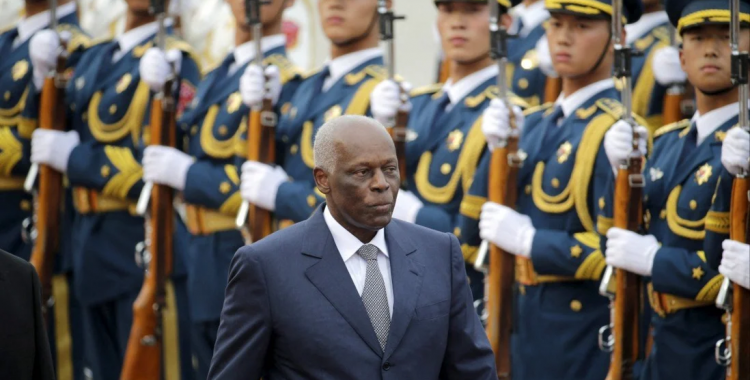"There is no will, this has already been confirmed by family members and the head of the escort with whom he confided for the last 33 years", the source told Lusa.
According to the same source, the former head of state was "pragmatic" and "will have given each of his children what he thought each should have", calling "each in his own time".
"Each of the children knows perfectly well what he has left," he added, admitting that "a lot of water will still flow under the bridge", as the head of state did not write down his last will.
In the meantime, the Government has given indications to the lawyers representing it in Barcelona to find out if José Eduardo dos Santos could be in an illegal situation, as reported by Club K, having ruled out that possibility.
"If he were an illegal immigrant, the matter would already be resolved", said the source, indicating that José Eduardo dos Santos had been treated by the same doctors in Barcelona for several years and enjoyed the same status as when he was President, which allowed him to stay as long as he could. needed in Spain for medical treatment at the Teknon clinic, where he died on 8 July at the age of 79.
"He was not resident in Spain, but in Angola. He had a support team, with around 15 people, assigned to his service and to his escort, and this one was delivered every 30 days. The only ones who had visas long term were the President, his personal doctor and the head of the escort, but José Eduardo dos Santos had no need to leave Spain, not least because he was often hospitalized", he detailed.
The issue was raised by the Club K website, according to which the Spanish judge who judges the case "discovered" that the former President would be illegal in Spain because, having entered with a diplomatic passport (which does not require an entry visa), he exceeded the time was allowed and did not apply for a visa to stay in the country.
According to his daughter Tchizé dos Santos, people with diplomatic passports can freely enter the countries, but they cannot stay for more than 90 days, and "if they do, they will have to deal with a resident card", which Jose Eduardo dos Santos did not have.
"The embassy, the Government of Angola, didn't deal with anything and they didn't even need to do it. It was enough to give a diplomatic status to the engineer Jose Eduardo dos Santos and register him with that status with the Spanish Ministry of Foreign Affairs for him to appear from the list of the diplomatic corps. So, nowadays they could be the ones in charge because the house of Eng. Eduardo dos Santos would be Angola's territory, it would be a diplomatic house, which never happened", he said, in a voice message sent to Lusa.
This could be a decisive week for the Spanish court, which asked for complementary toxicological tests to the autopsy, postponing the judicial decision on the custody and eventual transfer of the ex-President's body to Angola.
The court will also have to summon the Spanish police and immigration authorities, to determine the legality of Eduardo dos Santos' stay in the Iberian country and where his residence was in fact.
Two factions of the dos Santos family dispute, in the Family Court of the Civil Court of Catalonia, who will have custody of the body of José Eduardo dos Santos.
On the one hand, there are Tchizé dos Santos and his older brothers, who oppose the delivery of the remains to the former first lady and are against holding a state funeral before the elections to avoid political use.
On the other side is the widow Ana Paula dos Santos and their three children in common with Jose Eduardo dos Santos, who also claim the body and want it buried in Angola in the near future.
This claim is supported by the Government, which announced its intention to hold a state funeral, but had to content itself with seven days of national mourning and a disembodied wake, while the dispute continues in the courts, four days before the start of the campaign. for the general elections, becoming a political fact that is marking the electoral race.
In an interview with the media on Sunday, the Minister of State and head of the Military House of the President of the Republic, who leads the delegation representing the Angolan State, General Francisco Furtado, expressed confidence in a favorable outcome, stressing that citizens Angolans and the international community want to see "the problem solved".
"The entire Angolan nation wants the presence of its former leader in the country to pay him the deserved tribute", said Francisco Furtado, stressing that if the Spanish authorities take into account the reasons that led the former President to Barcelona "there will be no other outcome other than the return of the body to Luanda".







